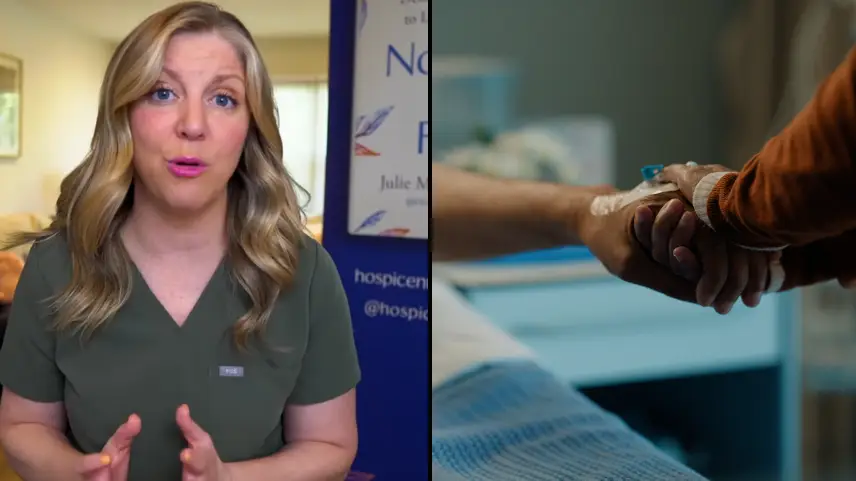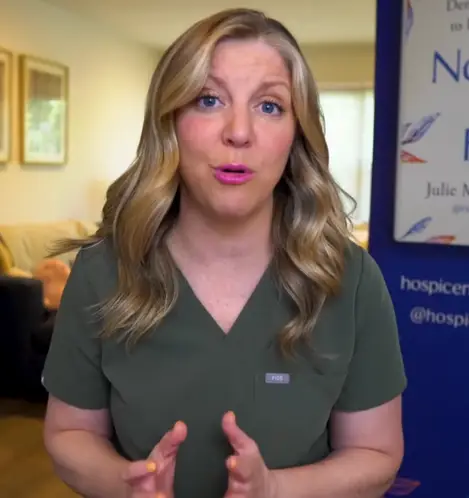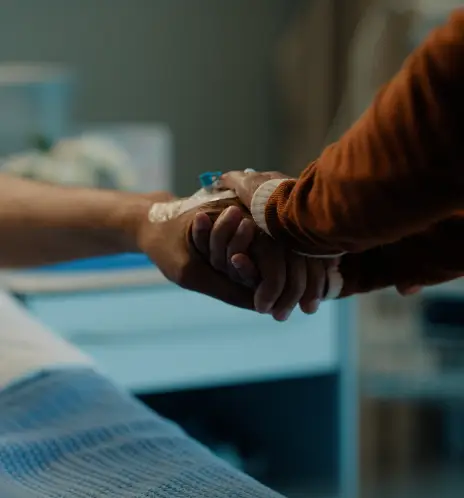
A hospice nurse has revealed what she believes the 'worst thing to die of' is.
Julie McFadden is tasked with supporting adults who are coming to the end of their life, and a huge part of her job is being witness to people in their final moments.
The 39-year-old, from Los Angeles, California, US, focuses on making patients as comfortable as possible before they pass.
She claims that reactions vary from person to person.
Advert
Many experience 'visioning' around a month before they die, and this is when people on their deathbed remember their family members and friends who are no longer here.

"It happens most of the time at the end of their life, but they aren't delusional," the former ICU nurse said. "It's called 'visioning' and it's often very comforting for the person.
"It's never scary - if they're scared, it's likely they're experiencing delirium or paranoia, not visioning.
"People don't talk about it much but it's really common and more than half of people I have looked after have experienced it.
"It's so normal to fear death and I've had several patients who have expressed their fear - but then a family member came to them and they were no longer scared."
Those who experience visioning are conscious and lucid, the nurse added.
She said: "Sometimes patients say they had a loved one come in a dream, or for others they're awake.
"Lots of times people who have experienced this will say 'I know this sounds crazy' - they're very aware of what's going on."

However, McFadden believes that the worst thing to die of is ALS, known as Motor Neurone Disease (MND) in the UK.
She told the Problem Solved podcast: "I think ALS is one of the worst. ALS is really bad. If I ever got ALS, I think I would take medical aid and dying, like I would probably end up taking medicine to end my own life.
"I just wouldn't want to do it. That's a tough one."
According to the NHS, MND is a condition that affects the brain and nerves, leading to weakening of the muscles.
"There's no cure for MND, but there are treatments to help reduce the impact it has on a person's daily life," the health service said.
"Some people live with the condition for many years. MND can significantly shorten life expectancy and, unfortunately, eventually leads to death."
On her TikTok page @hospicenursejulie, she attempts to put people at ease while educating them about death.
Topics: Health